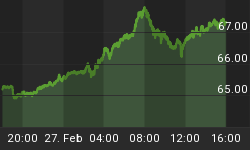The difficulties facing the US economy are largely unrelated to the Middle East. Forecasters are overplaying the effect on confidence of the possible Iraq war. The situation today is markedly different from other post-war downturns. The normal pattern is for households to raise their savings when the Federal Reserve increases interest rates. This holds back consumption and companies find that they have spare capacity. Competition gets tougher and profits fall, so that companies cut back on investment and hiring. This has an additional negative impact on the economy. As the economy weakens, however, so does the threat of inflation, which caused the Federal Reserve to raise interest rates in the first place. They are then able to cut interest rates again and, as they do, households once again reduce their savings. Consumption then recovers, spare capacity is reduced, profits rise again and companies resume their capital investment.
The current cycle is very different. The cause of the recession was a cut back in investment rather than in consumption. In this way it resembles the recessions of the 19th Century rather than those of the past 50 years. Investment in the bubble years ran ahead of the economy and profits weakened. Profits, as shown in the national accounts, actually started to fall from 1997 onwards, but the profits published by quoted companies went on rising until 2000.
Management was even more than usually anxious to push up the price of their companies' shares, because an increasing amount of their remuneration became dependent on stock options. In order to do this they became involved in dubious accounting practices. The whole phenomenon can be described as the "Enron effect", after the most famous example of accounting malpractice.
Companies normally cut back on investment when profits fall. In the late 1990s, investment continued to increase while published profits rose, but real profits fell. It seems that the management of companies not only fooled investors about their companies' real prosperity, they also fooled themselves. It was an example of the well known adage that the most convincing fraudsters are those who actually believe in the lies they tell.
America thus had an over-investment bubble which coincided with the stock market one. As the subsequent economic weakness has been caused by the fall in investment from bubble levels, a marked recovery in investment is unlikely.
During the stock market bubble there was also a huge fall in household savings, which has only recovered to a small extent. The investment bubble and the fall in savings caused a massive rise in debt for both households and companies, which must now be reduced. The US economy is still a long way from equilibrium and, far from being on the brink of recovery, is still threatened by continued weakness.
Although the threat of war in Iraq has not yet led to a rise in savings or a fall in investment, an outbreak of hostilities could precipitate both. In any event, household savings are likely to rise and have a greater negative impact than the small positive stimulus to the economy which should come from President Bush's proposed tax cuts.
Further cuts in interest rates by the Federal Reserve thus seem overdue. The reluctance to cut interest rates, shown in recent months, probably reflects a wish that the economy will recover without the need to reduce short-term interest rates to zero and, if that fails, to use less orthodox measures of stimulus. As interest rates have moved towards zero, the Federal Reserve has been nervous of using up its diminishing ability to cut rates. This has probably led The Federal Reserve to err on the side of excessive optimism about the economy.
In contrast to the past behaviour of the Bank of Japan, however, it seems probable that the Federal Reserve would be willing to act strongly to stimulate the economy if this optimism proves unfounded and the economy weakens.
The likelihood of such an approach has been heralded by the comments of Dr Ben Bernanke, a distinguished economist and the most recently appointed Governor of the US central bank. He has asserted, most strongly, that the Federal Reserve, and by implication all central banks, need never allow deflation to persist. Once short-term interest rates reach zero, he points out, then central banks can buy medium-term bonds and then long-term bonds and then other assets. He holds that there is no limit to the weapons available to a central bank and that they should be used.
Dr Bernanke's comments are extremely important for Japan as well as for the US. Japan has been suffering from deflation for many years. If Dr Bernanke is correct, this suffering has been needless. It is of course possible that he is wrong, but this cannot excuse a failure on behalf of Japan's central bank to try, when the existing policy has proved so futile. It is therefore vital that the new Governor of the Bank of Japan should reverse past policies and follow Dr Bernanke's advice. This would involve expanding the monetary base until the deadening impact of deflation has ended.















